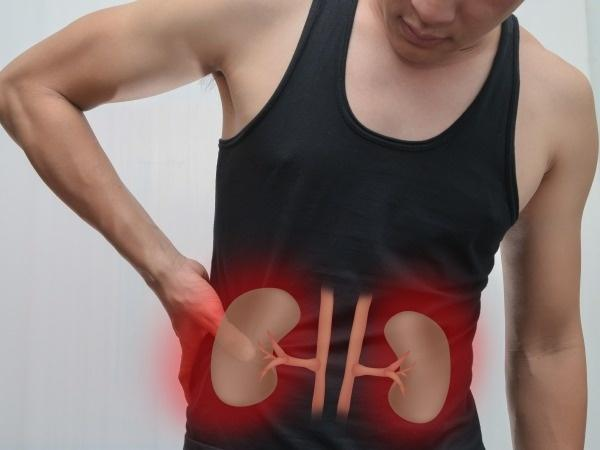Chronic Kidney Disease: A Doctor Explains Causes, Diagnosis & Care If You're In Early Stages
Chronic kidney disease is a significant cause of morbidity and mortality. It also has a substantial financial burden on the family. It is essential to identify the causes and risks for kidney diseases in an individual. Early diagnosis and effective management at an early stage prevent or delay the progression of kidney disease to an advanced stage.
Causes of kidney damage
There are several causes of kidney disease. Some of them are:
Diabetes: High
blood sugar in the blood may cause damage to the filters of kidneys.
Persistently elevated blood sugar levels damage the kidneys to such an extent
that they cannot filter the blood sufficiently. Both type 1 and type 2 diabetes
can cause kidney damage, the earliest sign of kidney damage in diabetes is
presence of micro albumin in urine which is detected by lab test
Hypertension: High blood pressure causes damage
to the blood vessels of the kidneys. Damaged blood vessels in kidneys reduce
kidney function
Genetic
diseases: Several
inherited kidney
diseases result in progressive loss of kidney function. These diseases result
in polycystic kidney disease, nephronophthisis, the two common diseases which
are present by birth but manifest later ages of life and collagen-related
kidney diseases.
Glomerulonephritis: It involves the inflammation of
the glomerulus. Glomeruli are small filters present in the kidneys. It can be
acute or chronic. Usually present with swelling of legs , protein and blood in
urine and many times high blood pressure
Urinary
tract obstruction: Blockage
may result in the development of kidney stones, recurrent infections, and
kidney damage. Some of the causes of kidney obstructions are urethral defects
in new born and early child hood and urinary bladder dysfunction in
children and adults
Recurrent
kidney infection: Repeated
kidney infections or severe infection may result in kidney damage. It is also
possible that the infection may spread to the bloodstream that may be
life-threatening.
Vesicoureteral
reflux: The
urine flow in the kidney is unidirectional, from kidneys to urethra. However,
in some cases, the urine flows backwards, resulting in kidney infection and
scarring later kidney dysfunction
Interstitial
nephritis: It
involves inflammation of the kidney tubules. Acute nephritis may result in
renal failure due to immune-mediated injury and side effect of some
medications use
Metal
poisoning: Several
heavy metals affect the functioning of the kidney as they are the organs
responsible for excreting heavy metals from the body. Heavy metals with
potential for kidney damage are barium, cadmium, arsenic, cobalt, lithium, and
mercury. These heavy metals cause slow damage to the kidneys
Autoimmune
diseases: Autoimmune
diseases also cause kidney diseases. Such autoimmune diseases include
anti-glomerular basement membrane (anti-GBM) disease, lupus nephritis and
ANCA-associated vasculitis and glomerulonephritis.
Medications: Consuming a large amount of
over-the-counter drugs may also cause kidney diseases. Such medicines include
naproxen, ibuprofen, and aspirin and some antibiotics
Diagnosis of kidney diseases in early stages
Most people with kidney disease do not experience any symptoms in the early stage. The condition may be diagnosed while investigating some other illness. Diagnosis of the early stages of kidney disease may involve the following techniques:
Identifying early signs: Patients should not ignore the early symptoms of kidney disease. Often swelling of legs or face , some times fatigue, alteration in urination (high or low frequency) especially at night times, foamy urine, nausea and vomiting, and lower back pain, skin itching and discoloration
Blood test: The doctor may recommend blood tests to determine the levels of such certain chemicals in your blood, such as urea and creatinine.
Urine test: Analysis of the urine helps determine the abnormality in kidney function. The urine tests assess the presence of protein, white blood cells, crystals, and red blood cells
Sonography: A radiological scan of abdomen to look at size and appearance of the kidneys
Caring kidneys in early stages
Caring kidneys in the early stages of the disease may delay or prevent disease progression in advanced stages. Some of the measures include:
- Restriction of dietary protein reduces the rise of glomerular pressure and delays renal disease progression. This delay in the progression of kidney disease is independent of blood pressure management.
- Keep your blood pressure under optimal limits by salt restriction and medications
- If you have diabetes, take medicine regularly to prevent elevated blood sugar levels.
- Get treatment of anaemia as hypoxia due to this condition may further deteriorate kidney function and also improve exercise tolerance
- Manage underlying specific medical conditions such as lupus nephritis, benign prostatic hyperplasia, kidney stones, and other anatomical obstructions.
- Regular exercise, weight management, dietary salt reduction, and quitting smoking prevent kidney disease progression.
- If you are at increased risk for developing kidney disease, undergo routine kidney examination at regular intervals like an annual health check up
- Consult with your doctor if you have symptoms of kidney infections. Early diagnosis and management of kidney infection reduce the risk of kidney damage.
- Undergo genetic testing if any of your family members suffers from hereditary kidney disease.
Share your knowledge & work with the world through our work either through Abstract Submission.
Visit: x-i.me/sentnph5
#awards #conference #nursing #medicare #Healthcare #abstract #research #pencis #care #medicine





No comments:
Post a Comment